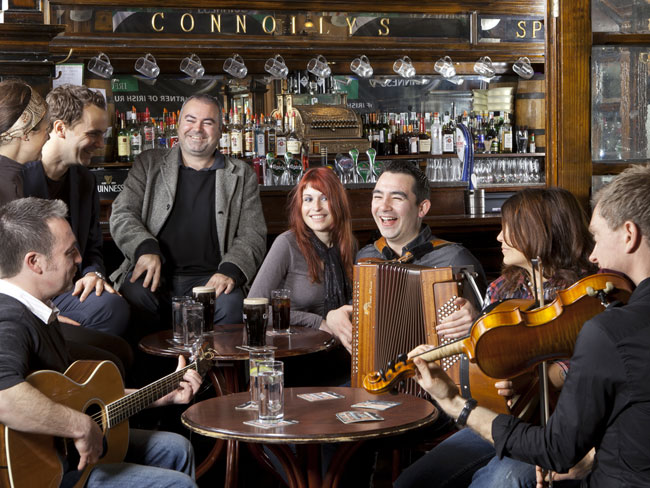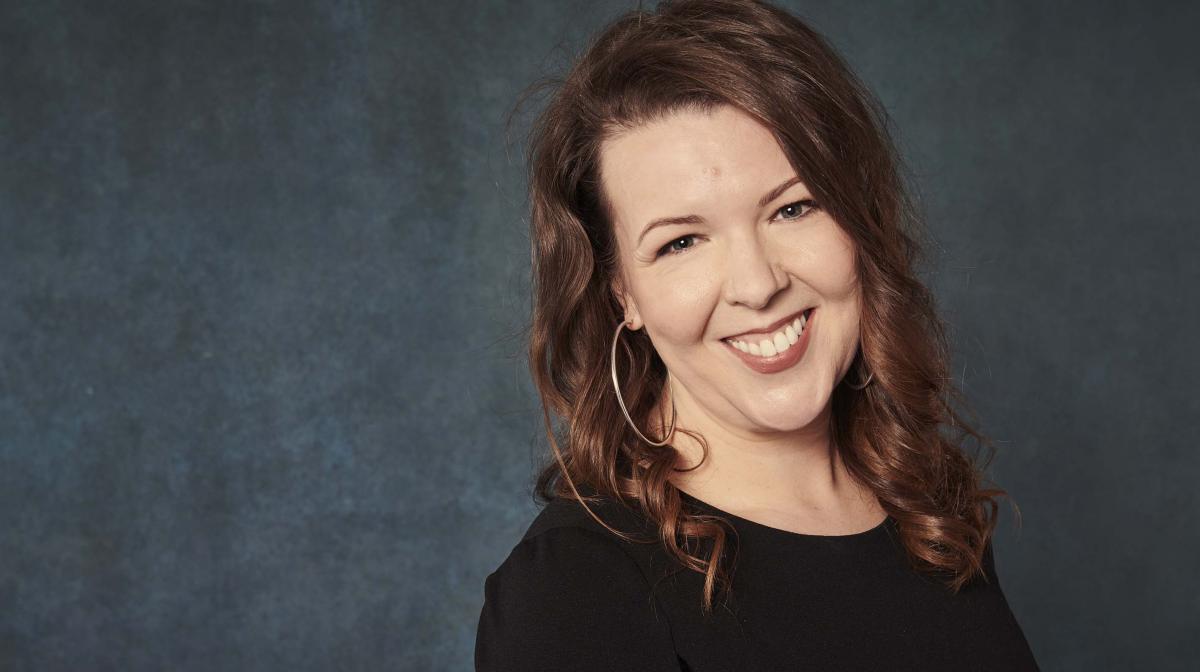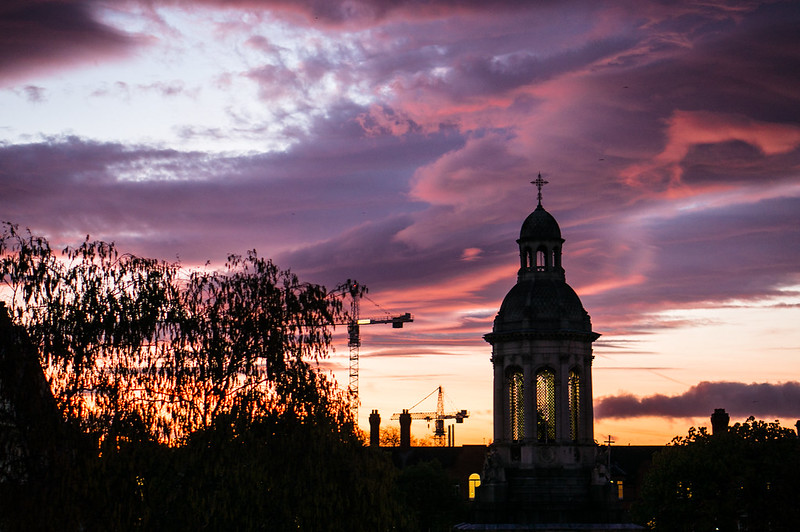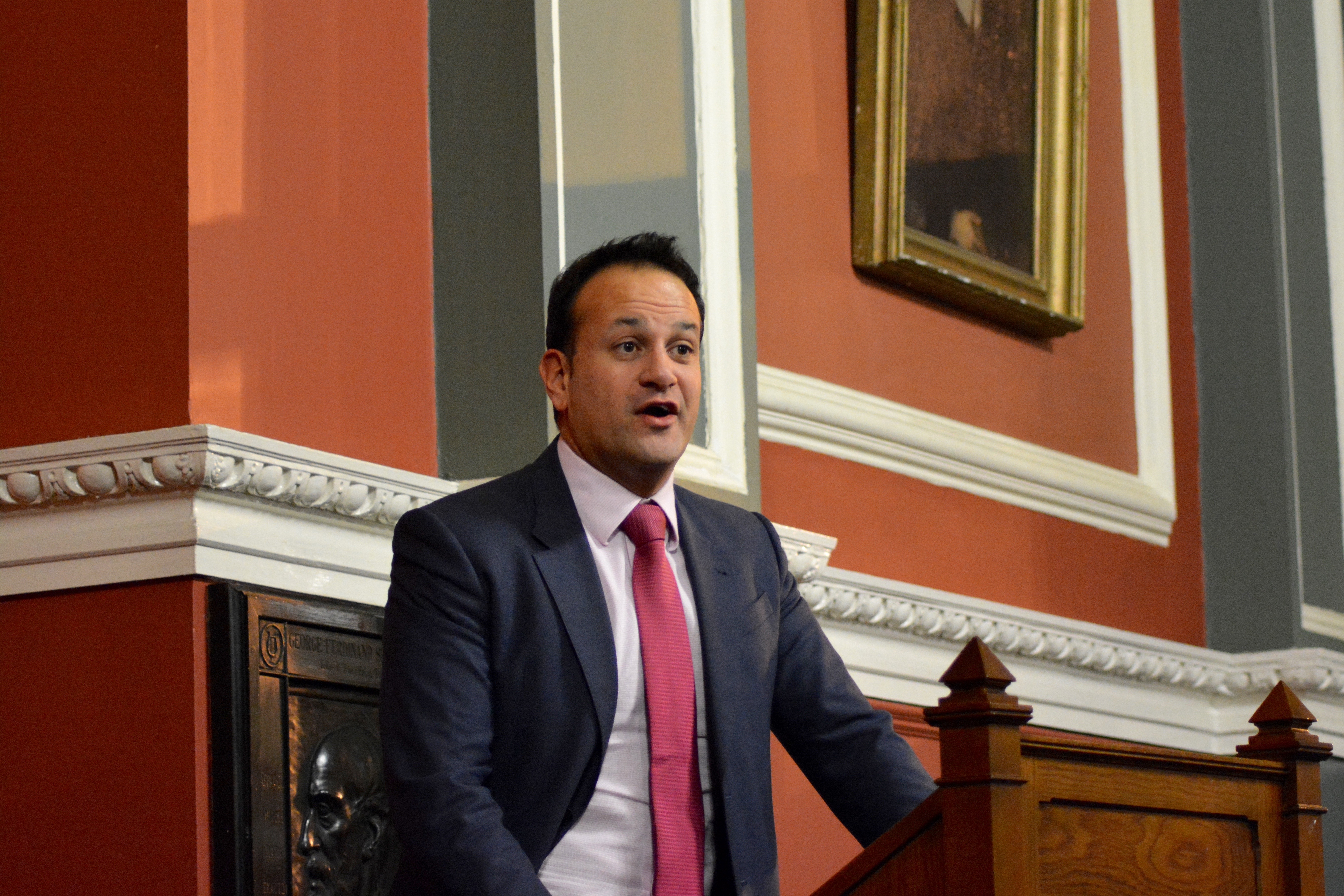As the plane touched down at last on the Emerald Isle, you looked through the window at the green fields of Ireland, and you finally felt at home. Armed with your well-thumbed travel guide, you felt you knew all there is to know about this fair land: the friendliness of the people, the picturesque scenery, and the vibrant culture. You felt as though the missing part of your identity had come into place. You were home. Then your fellow passenger turned to you and said: “Well bai, isn’t that weather pure cat melodeon.” You will be even more confused when I tell you that your fellow passenger was merely commenting on the inclement weather outside.
This year, I have been employed to deliver to Trinity’s incoming international students the unofficial travel guide to our dear country. A forgotten rocky outpost on the Western seaboard of Europe. In a true example of Darwinian evolution, Ireland has developed an identity, mannerisms, music, language, and an accent that is truly unique. By the end of this article, I expect you to be able to blend in seamlessly with the rest of the natives on your first visit to the Pav, Trinity’s own on-campus bar, and dazzle your new Irish fancy with your local knowledge. Just please don’t say “top of the morning”.
Firstly, and perhaps most importantly, I must explain the word “craic”. Pronounced “crack”, craic can be found in all forms and in all venues. The craic in Irish pubs is said to be the best in the world. But it is not just to be found in bars. Indeed, there is often great craic at weddings, concerts, and your friend’s house. Some even claim to have had great craic at funerals. More importantly, craic is not cocaine. It is a vague Irish concept that encapsulates the unique mix of fun and debauchery to be enjoyed amongst the native people. In fact, Ireland could possibly be the only place on Earth where you can ask a policeman “any craic?” and not be arrested. So do say: I had great craic last night. And don’t say: I read in the Essential College Guide that you can smoke great craic at Irish funerals.
Even in tiny Ireland, the dialect can vary wildly depending on the location. In Dublin City, you will likely be greeted with the phrase “What’s the story?” You do not have to compose a story. You are in fact merely being inquired as to your wellbeing. When being greeted by someone from outside of Dublin (often known as a “Culchie”, deriving from “agriculturalist”) you may be asked “How is she cutting?” Do not fear. Whoever she is, they’re not cutting anyone or anything. Just reply with “fine, thank you”. Trust me. If you are told that “last night was deadly!”, nobody died. In fact, everyone had a lovely, enjoyable evening. Garden equipment is also used indiscriminately both as units of measurements and as verbs, such as “I had a rake of drink last night” or “I shovelled the dinner into me”. If a film someone watched is described as “savage”, it is not likely to have been vicious, cruel or aggressively hostile. It is more likely to have been a delightful and amusing experience.
I did explain that we are unique!
At some stage in your time here, you will be asked if you want to go to “Coppers”. Coppers is a popular nightclub on Dublin’s Harcourt Street which bizarrely also holds the title of national icon and institution. Expect to hear a heady mix of “Uptown Funk”, Backstreet Boys and, Ke$ha. It is the place where you will find the sweatiest revellers still going strong at 3am, the vast majority of them still looking for that “shift”. A “shift” is known in other countries as “making out” or “French kissing”. However, the Irish had to come up with a term that hints at underlying pain and hardship. The scarily noiseless tram that zips through Dublin is known as the Luas, pronounced “Lewis”. The never-ending construction on the doorstep of Trinity is due to the fact that during the building of the Luas tramline sometime ago, someone genuinely forgot to join up the north line and the south line together. A minor error.
The official language of Ireland is “Gaeilge”, pronounced “Gayulga”. Spoken by a robust and passionate minority of people, it dates back to around the third Century. A beautiful, if intricate language, it is enjoying a revival of sorts in urban Ireland. Charm your new classmates with a greeting of “Dia Duit!” (pronounced “dee-a gwit”) meaning “Hello”, or “Conas atá tú?” (cunis ataw too) meaning “How are you?” If all else fails, just compliment us on our accent. We love that. Although, in Ireland, it is seen a sin to accept compliments, so do not be surprised to receive the reply “Go away out of that”. Do not actually go away. Compliment us some more. We’re just being Irish about it.
The national sports of Ireland are called Hurling and Gaelic Football. Hurling is often described as a cross between lacrosse, rugby, football, Quidditch, and murder. Gaelic football is rather like soccer, except it’s completely different and you can use your hands. As I have displayed, these sports are truly unique and unexplainable, and are definitely a must see for any international students at a live game or even on YouTube.
On this whirlwind stop of all things Ireland, I have tried valiantly to introduce you to the various idiosyncrasies that encapsulate the Irish identity. All I can recommend is for you to immerse yourself in the culture and I’m certain that you will truly enjoy your time here. Though you may be disappointed to realise that leprechauns do not, in fact, exist, I am confident that all you heard about the warmth of the Irish people will be proven and surpassed. Just please don’t say “top of the morning”.
Colm Ó Néill is a second-year Law & Politics Student, and is the Irish Language Editor of The University Times.







